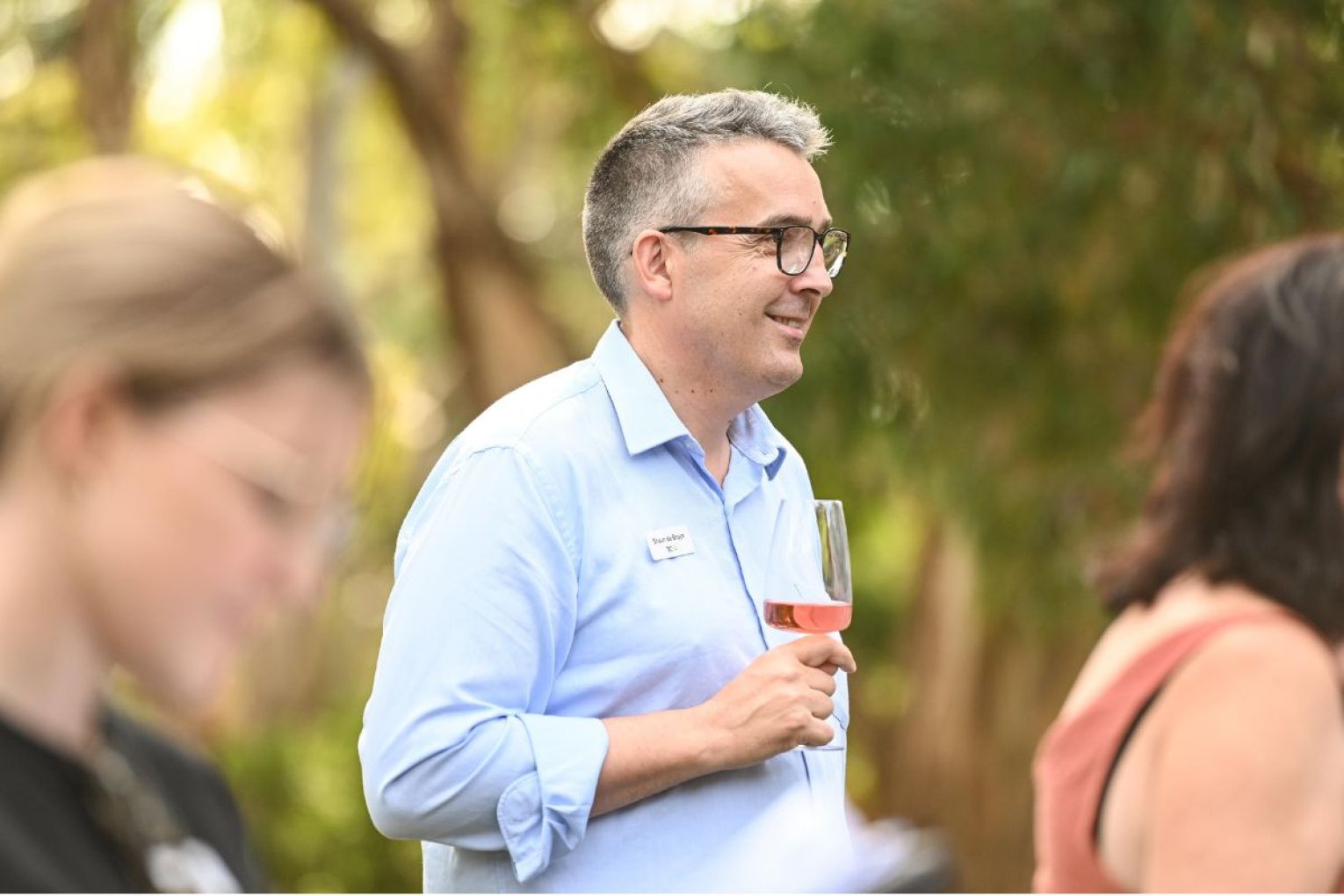Tourism industry boss flags costs and algal bloom as he departs top job
The CEO of the state’s peak tourism industry group tells InDaily that SA’s algal bloom and the “cost of doing business” are the biggest challenges facing the industry, as he leaves the job after 10 years.

Chief Executive Officer of Tourism Industry Council of South Australia (TiCSA) Shaun de Bruyn fears the state’s tourism industry – one of the state’s key economic drivers, valued at almost $10 billion as of December 2024 – is taking a hit from the harmful algal bloom with a recent report showing a massive downturn in business.
A recent TiCSA report identified that coastal businesses had seen a 40 per cent downturn in business conditions at an average financial loss of $52,000 due to the algal bloom.
This prompted the state and federal governments to launch the Coast is Calling travel voucher program and dining cashback schemes as part of the Summer Plan to boost tourism and hospitality.
De Bruyn, who is stepping down from his role, said the algal bloom was “definitely the biggest challenge” currently facing the state’s tourism industry
“The algal bloom is obviously a really big challenge for those businesses that are impacted, whether it’s by perception or by the reality of having challenges in their coastal environments,” he said.
During his time as CEO, de Bruyn had experienced “five significant disasters” that had disrupted the tourism industry including floods, bushfires, COVID-19 and now the harmful algal bloom.
De Bruyn describes the government response to the algal bloom as “the best I’ve ever seen across those five disasters” to address the impact on the tourism industry.
You might like
“We continue to work with government and communicate with them around areas where more support can be provided,” he said.
“There is direct financial support for businesses dealing with financial distress and there is significant resources being put into destinations and communities dealing with the algal bloom.”
De Bruyn said the “cost of business” was another major issue, with hefty insurance costs affecting the industry.
“It’s unprecedented in my time in terms of how much it costs to do business. It’s not just an SA issue, it’s definitely a national and arguably a global issue,” de Bruyn said.
“Costs are increasing and it’s incredibly difficult for businesses to manage their financial affairs based on the fact there’s so many different financial pressures.”
De Bruyn said insurance costs, particularly for tourism businesses in high-risk areas, was an ongoing challenge.
“We need the federal government to work with the state government to find ways to take pressure off the risk profile that exists for tourism businesses, which ultimately costs so much money,” he said.
Despite the challenges, he said the future of the state’s tourism had the chance to “build and empower local communities” and was an “important part of the economic engine” in the state’s economy.
Stay informed, daily
“We saw this through COVID-19. Not only was it recognised for its economic output, but communities across the state recognised tourism as being incredibly important at the community level as well,” he said.
“We can do good not just economically, but we do good socially, culturally, environmentally and that’s why tourism is the best.”
After more than 10 years as CEO, de Bruyn made the decision to step down from his role saying “it’s time for a change”.
The industry had grown from $5.9 billion since de Bruyn first started as CEO in 2015 and was expected to grow to $12.8 billion and support more than 44,000 jobs by 2030.
“We’ve got a huge opportunity to help people in other areas, at a community, cultural and environmental level, understand that tourism stands with them and can deliver their aspirations and our aspirations at the same time,” he said.
“SA tourism should be guided by Aboriginal culture and wisdom — there’s so many great cultural opportunities.”
Of the many SA destinations de Bruyn was “very fortunate” to have travelled to, one destination stands out as his favourite.
“My number one favourite place is the Gawler Ranges, it’s where I cut my teeth early on in my career. It’s such an amazing part of the state,” he said.
“South Australia is the best state in what is a great country — I love all parts of our state and am very fortunate to have seen a lot of it.”
During his tenure, de Bruyn said TiCSA has doubled its membership to more than 1100 and secured ongoing government funding to promote the tourism industry’s evolvement.
“It’s very dynamic, fast-moving and high-energy industry where innovation continues to come in at all turns,” he said.
“As CEO, you want the organisation that you lead to be in a better state than when you arrived and I’m very confident that we’ve achieved that.”
De Bruyn would see out his contract until late March or early April, where he would take “a short break” before stepping back into the tourism industry later next year.
“I love the industry, but it’s time for a change for me personally — I think it’s good governance as well to have new leadership at different times,” he said.
TiCSA has commenced the process to appoint a new CEO, where a board-appointed committee would oversee the recruitment process.








